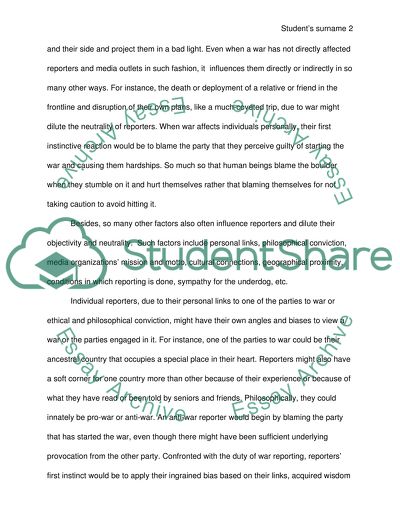Cite this document
(“Media Bias in War Essay Example | Topics and Well Written Essays - 1500 words”, n.d.)
Retrieved from https://studentshare.org/english/1452954-media-bias-in-war
Retrieved from https://studentshare.org/english/1452954-media-bias-in-war
(Media Bias in War Essay Example | Topics and Well Written Essays - 1500 Words)
https://studentshare.org/english/1452954-media-bias-in-war.
https://studentshare.org/english/1452954-media-bias-in-war.
“Media Bias in War Essay Example | Topics and Well Written Essays - 1500 Words”, n.d. https://studentshare.org/english/1452954-media-bias-in-war.


